Promoting mutual recognition of key product carbon labels with countries along the Belt and Road Initiative enables traceability of carbon footprints for Chinese machinery and electronic products. The China Carbon Label for Machinery and Electronic Products accelerates the development of new productive forces, drives the low-carbon transformation of products throughout their lifecycle and the green development of industrial and supply chains, enhances competitiveness in foreign trade, and facilitates the outbound movement of China's advantageous technologies and high-quality, efficient, green products.
Under the guidance and special support of the Ministry of Commerce of China and the Ministry of Trade and Industry of Singapore, the 2024 Conference on International Industrial Cooperation (Singapore) and Chinese Machinery and Electronic Products Brand Exhibition (hereinafter referred to as the "Conference"), jointly hosted by the China Chamber of Commerce for Import and Export of Machinery and Electronic Products and the Singapore Chinese Chamber of Commerce & Industry, was grandly held from March 19th to 21st at the Singapore International Convention and Exhibition Centre. Over 500 industry representatives from China, Singapore, and other RCEP countries' government departments, key financial institutions, and leading enterprises engaged in in-depth discussions on relevant topics. The aim was to actively implement the consensus of cooperation between the two governments, promote multilateral and bilateral economic and trade exchanges, and build an international platform for industrial cooperation and support services through the conference and exhibition.
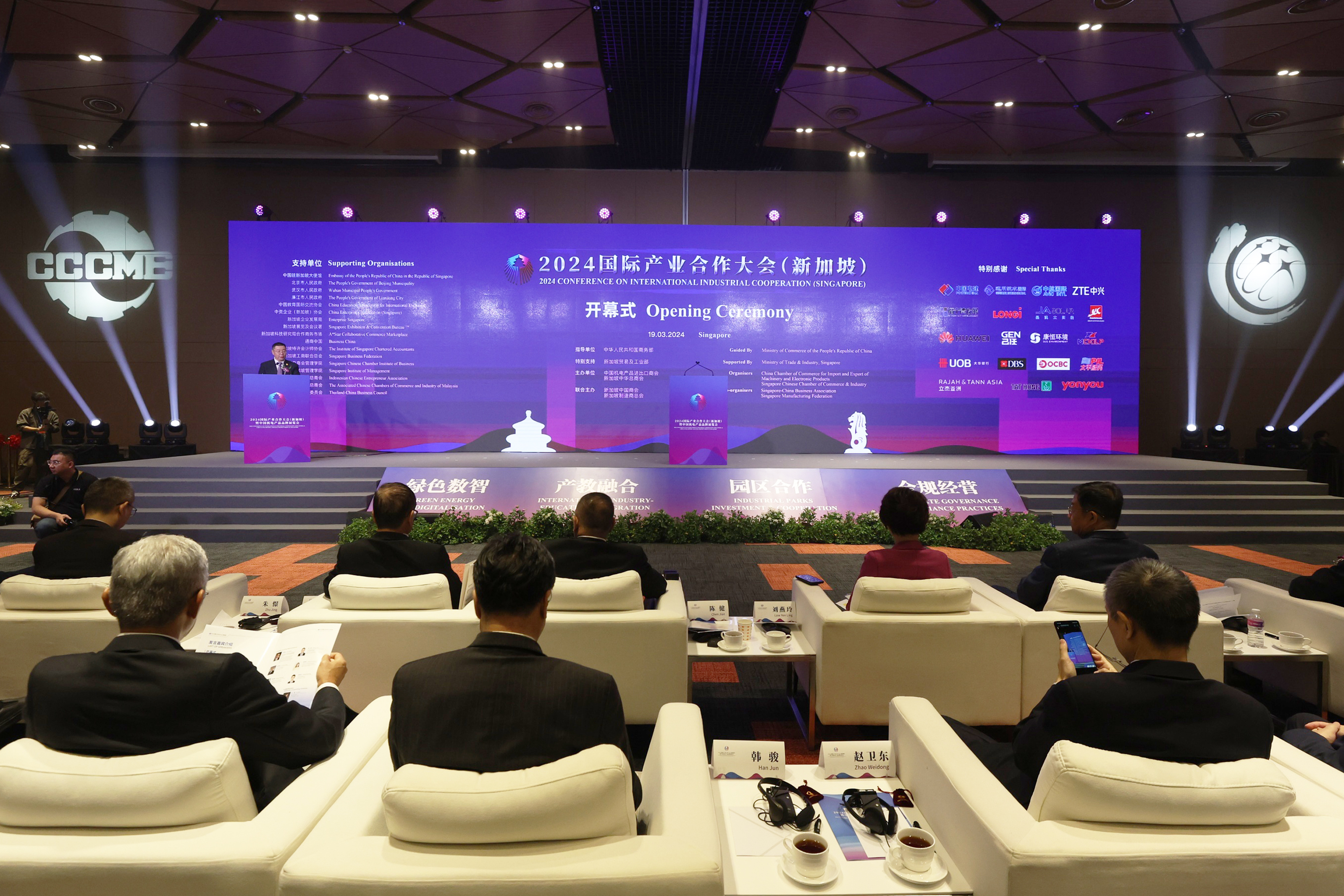
Opening ceremony of the 2024 international industrial cooperation conference and Chinese machinery and electronic products brand exhibition
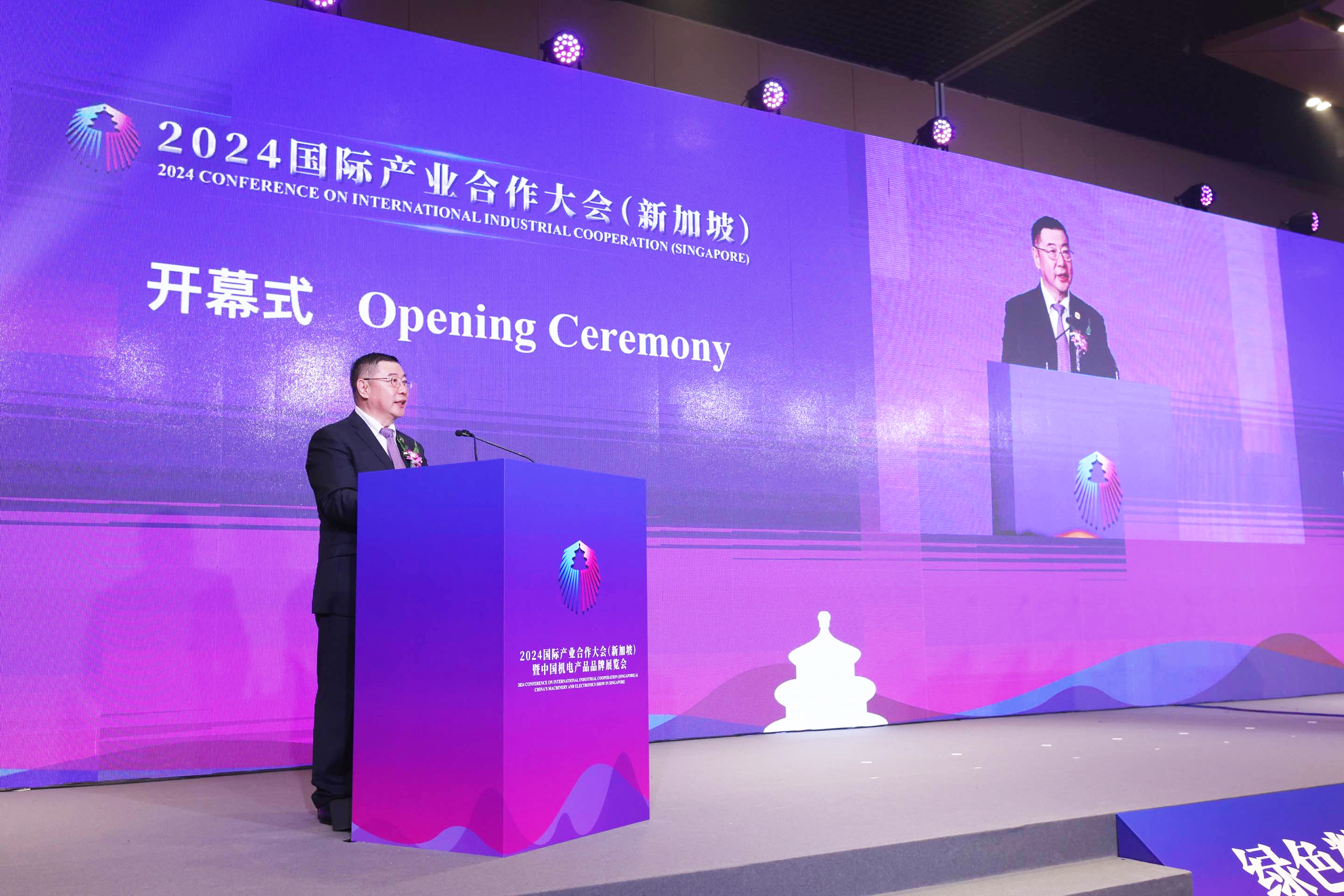
Zheng Chao, executive vice president of the China Machinery and Electronics Chamber of Commerce and director of the Expert Committee, presided over the opening ceremony

Kho Choon Keng, President of the Singapore Chinese Chamber of Commerce & Industry, delivers a speech
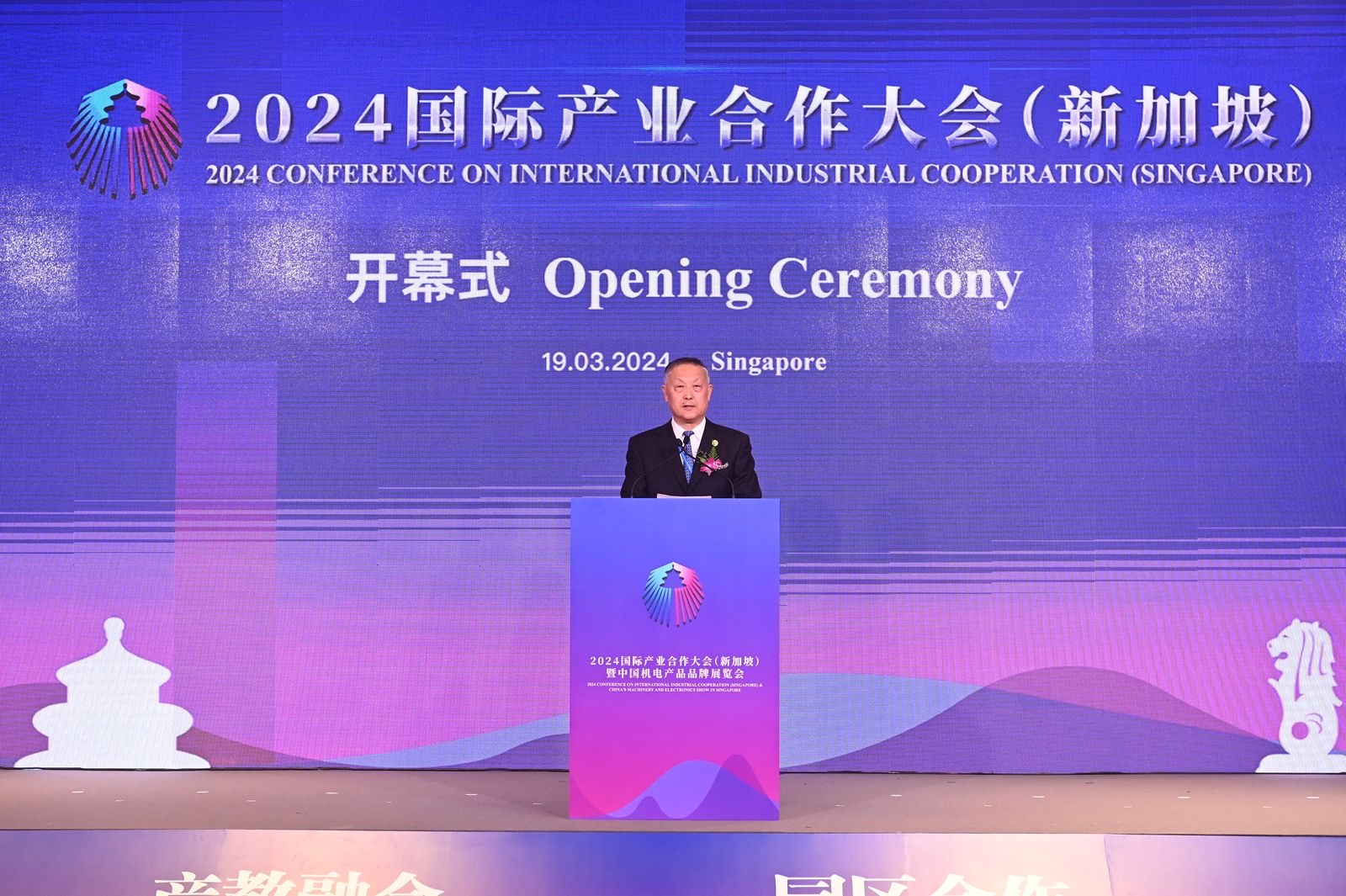
Zhang Yu Jing, president of the china chamber of commerce for import and export of machinery and electronic products, delivers a speech
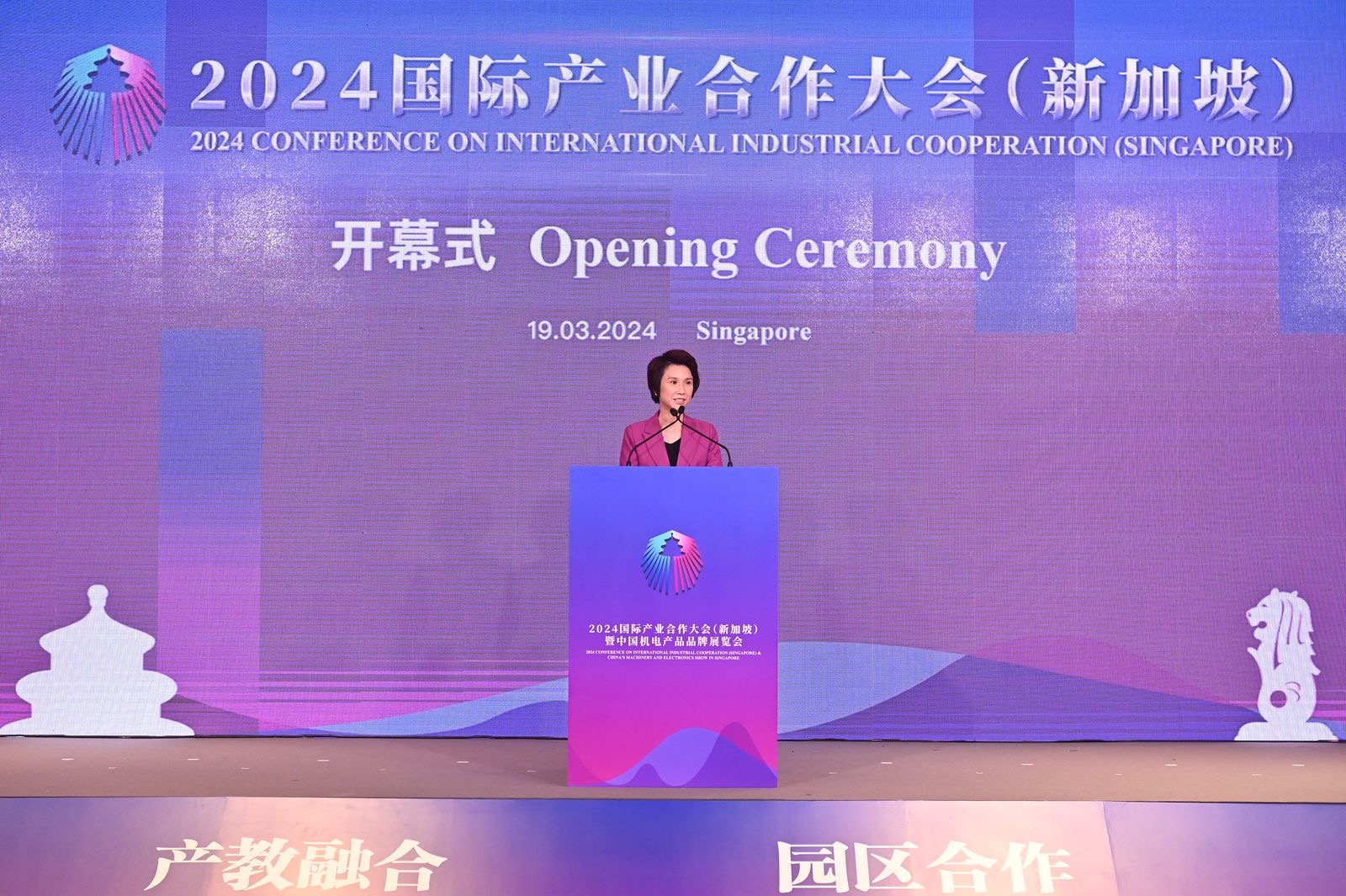
Low Yen Ling, Minister of State for Trade and Industry, Culture, Community and Youth of Singapore, delivers a speech
At the opening ceremony of the conference, the China Chamber of Commerce for Import and Export of Machinery and Electronic Products (CCCME), in collaboration with Shanghai Carbon Newture Technology Co., Ltd. (Carbon Newture), unveiled the China Carbon Label for Machinery and Electronic Products for the first time. The launch of the China Carbon Label for Machinery and Electronic Products marks a milestone in enhancing the management level of domestic product carbon footprints and promoting the integration of international standards and local certifications. Additionally, CCCME signed a Green Development Cooperation Memorandum with the Singapore Manufacturing Federation, aiming to consolidate the high-quality resources of both parties to serve member companies in achieving green development and actively promote the mutual recognition of carbon labels.

CCCME Executive Vice President Zheng Chao and Carbon Newture CEO Arthur Huang jointly unveil the China Carbon Label for Machinery and Electronic Products
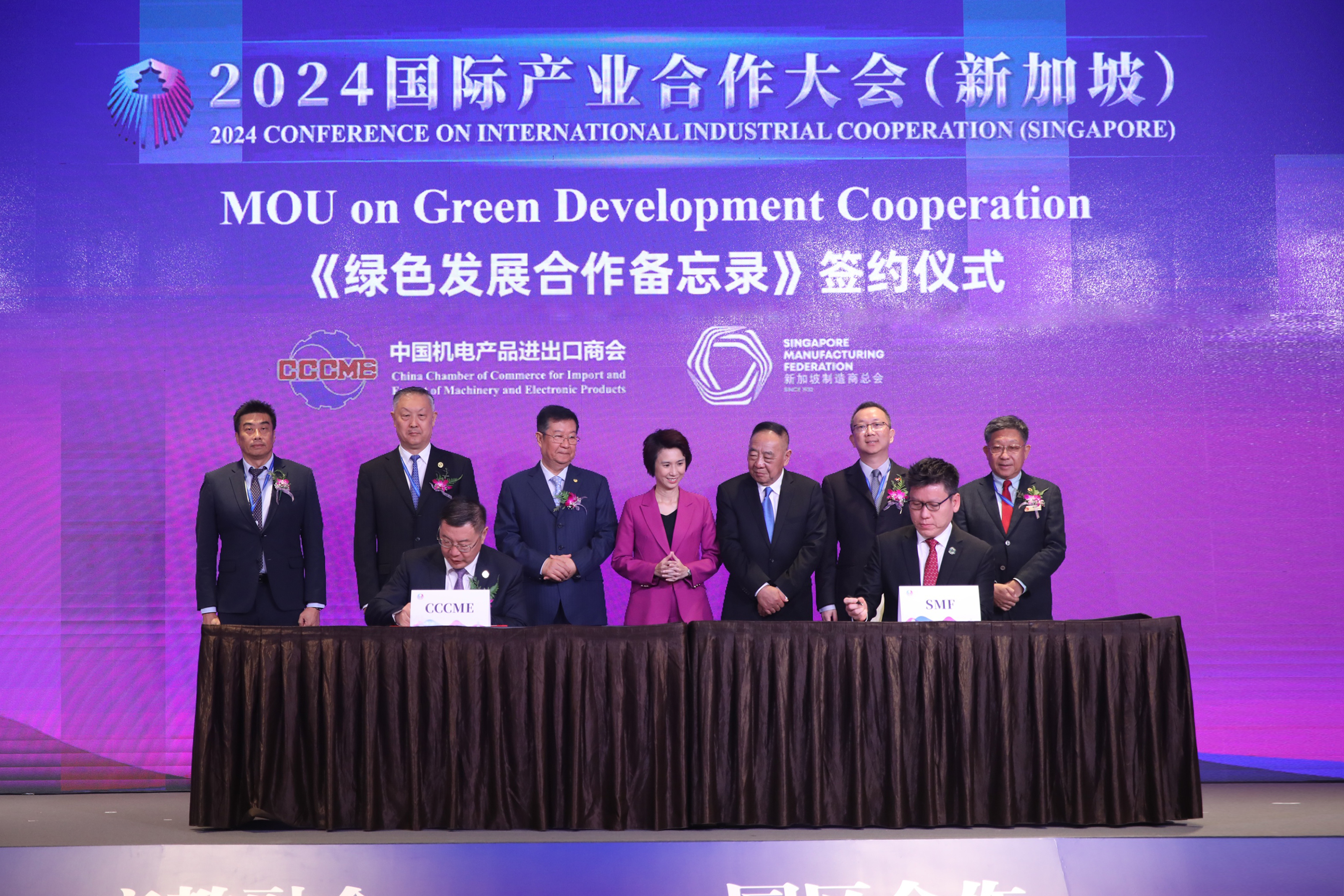
CCCME and Singapore Manufacturers Federation sign MOU on Green Development Cooperation
01 China machinery and electronic products carbon label release background
In the backdrop of the prominent global climate change and international green trade barriers, the demand for carbon footprint, carbon label, and carbon information disclosure from China's machinery and electronic products manufacturing and sales enterprises is becoming increasingly urgent. As a key promoter of low-carbon development and green transformation in the machinery and electronic industry, the China Machinery and Electronic Products Import and Export Chamber of Commerce, with the support of digital technology from Carbon Newture officially launched the "China Carbon Disclosure Platform for Machinery and Electronics" during the inaugural Singapore International Industrial Cooperation Conference in March 2023. Currently, hundreds of enterprises have disclosed carbon footprint information for hundreds of products, gradually forming a resilient and highly transparent dual carbon information ecosystem.
The launch of the China Carbon Label for Machinery and Electronic Products by the China Machinery and Electronic Products Import and Export Chamber of Commerce represents a beneficial practice aimed at accelerating the development of new quality productivity, meeting the requirements of green development for enterprises, promoting the low-carbon transformation of the entire product lifecycle, advancing the green development of industrial chain supply chains, enhancing competitiveness in foreign trade, and facilitating the internationalization of China's advantageous technologies and high-quality, efficient green products. Particularly innovative is the approach of mutual promotion and recognition among different national chambers of commerce, which effectively enhances the feasibility and recognition of international mutual recognition of product carbon label, thereby contributing to valuable exploration in the internationalization of China's carbon label.
02 China Carbon Label for Machinery and Electronic Products and Its Significance
Compared to traditional carbon labels, the China Carbon Label for Machinery and Electronic Products has a groundbreaking feature of carbon footprint traceability, enabling true visibility, traceability, and recognition of product carbon footprints.
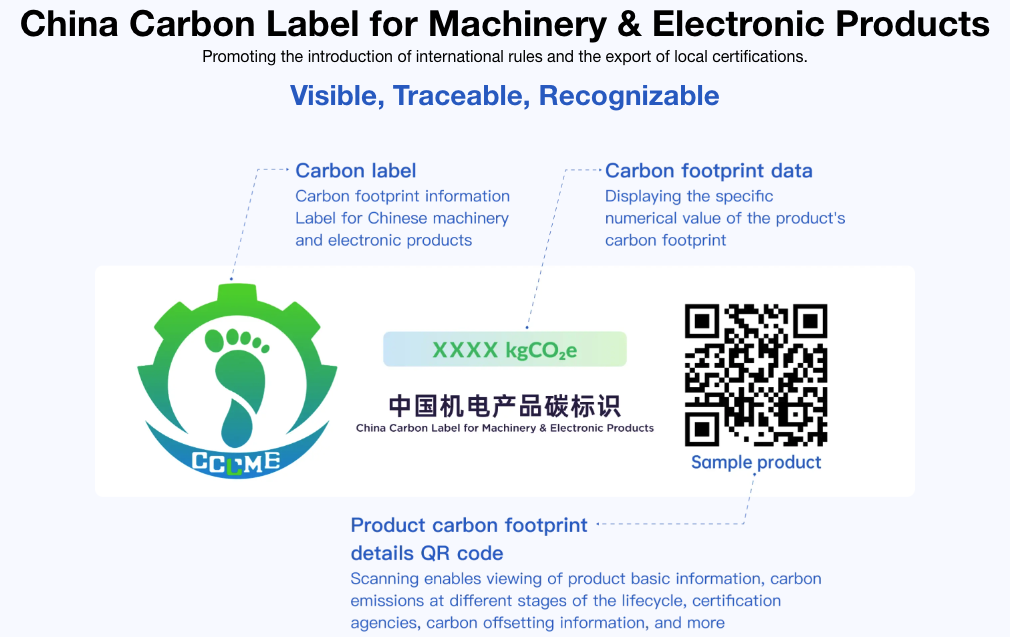
Source:China Carbon Disclosure Platform for Machinery and Electronics
The release of the China Carbon Label for Machinery and Electronic Products is based on the need to adhere to the green and sustainable development of Chinese machinery and electronic enterprises and their high-quality international expansion. Only by clarifying product carbon footprints, disclosing product carbon information in compliance, and ensuring traceability of dual carbon information can we truly empower the green and low-carbon value of products, thereby enhancing brand sustainability and boosting the green consumption market.
The promotion of the China Carbon Label for Machinery and Electronic Products helps drive enterprise low-carbon transformation, facilitates supply chain collaborative decarbonization, avoids green trade barriers, fosters low-carbon consumption awareness, and achieves China's dual carbon goals.
03 How to Obtain the Carbon Label for Machinery and Electronic Products
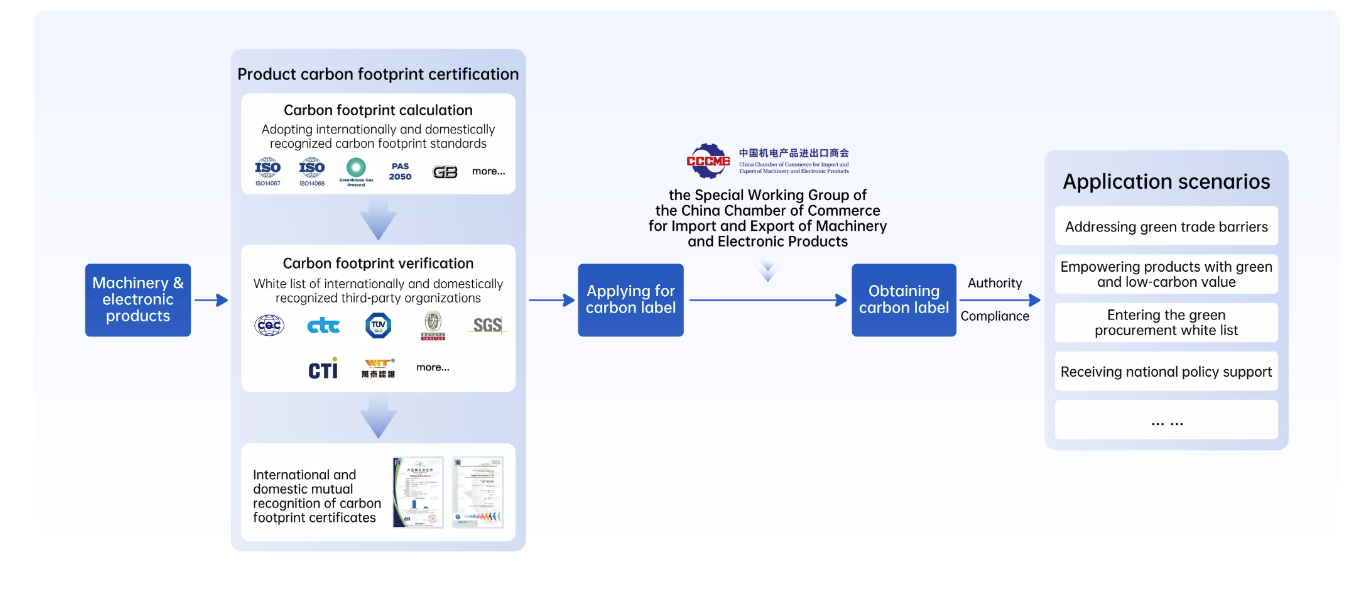
Source:China Carbon Disclosure Platform for Machinery and Electronics
The diagram above illustrates the process for obtaining the China Carbon Label for Machinery and Electronic Products
First, the machinery and electronic products need to undergo carbon footprint accounting using internationally and domestically recognized standards. After verification by third-party certification bodies listed on the whitelist, they obtain internationally and domestically recognized carbon footprint certificates to ensure the compliance of product carbon data.
Next, the company submits an application for carbon labeling, which is reviewed and approved by the expert committee of the China Machinery and Electronic Products Import and Export Chamber of Commerce. Products that meet the requirements can obtain the China Carbon Label for Machinery and Electronic Products.
Finally, machinery and electronic products that have obtained the carbon label will have their carbon information disclosed on the "China Carbon Disclosure Platform for Machinery and Electronics", receiving traffic support. Additionally, the product carbon information will be automatically synchronized with relevant applications and procurement scenarios, effectively promoting the value of green and low-carbon products.
By empowering the green and low-carbon value of products, the China Carbon Label for Machinery and Electronic Products can help products gain differential competitive advantages, enter green procurement whitelists, obtain support from national policies, and smoothly navigate green trade barriers for overseas expansion. It represents a landmark pilot project in China's efforts to establish a product carbon labeling and certification system.
Article source: XinHua Net